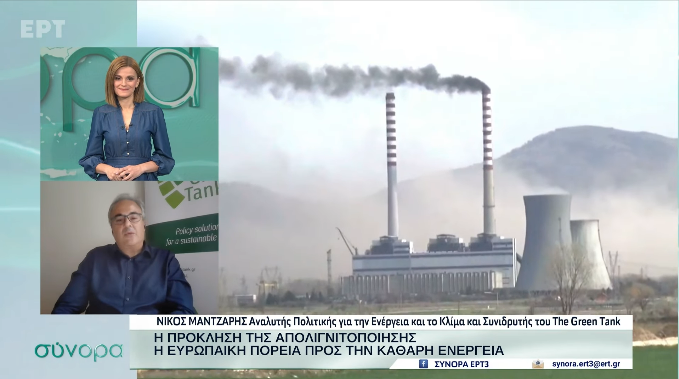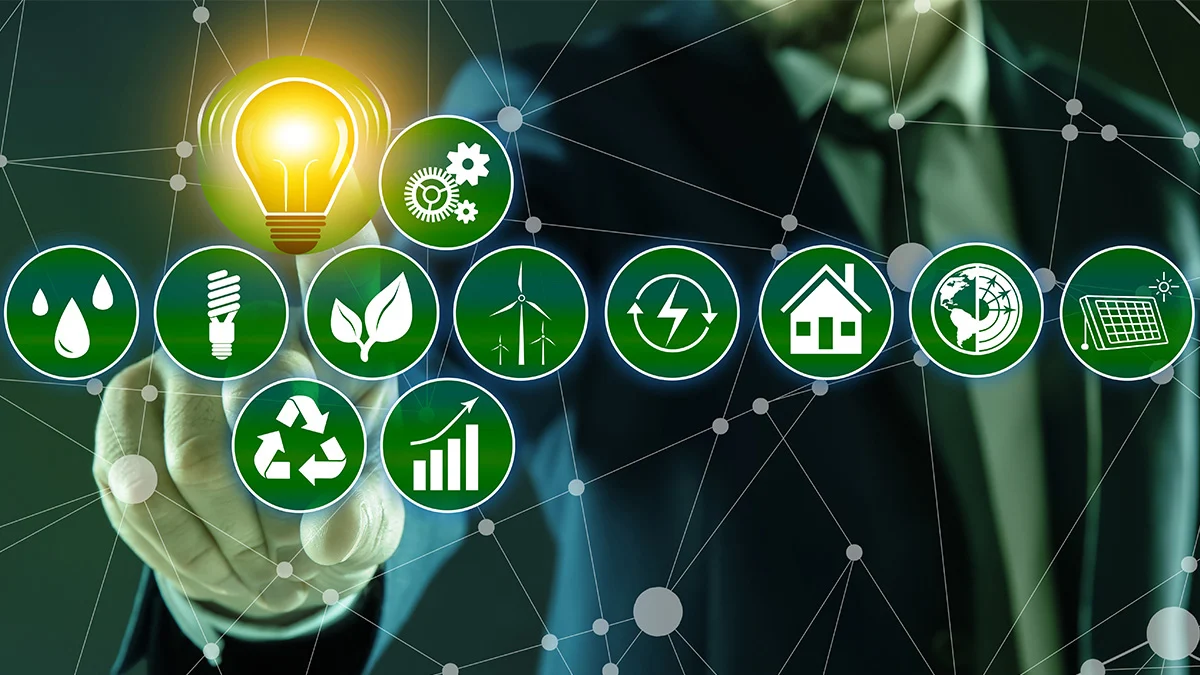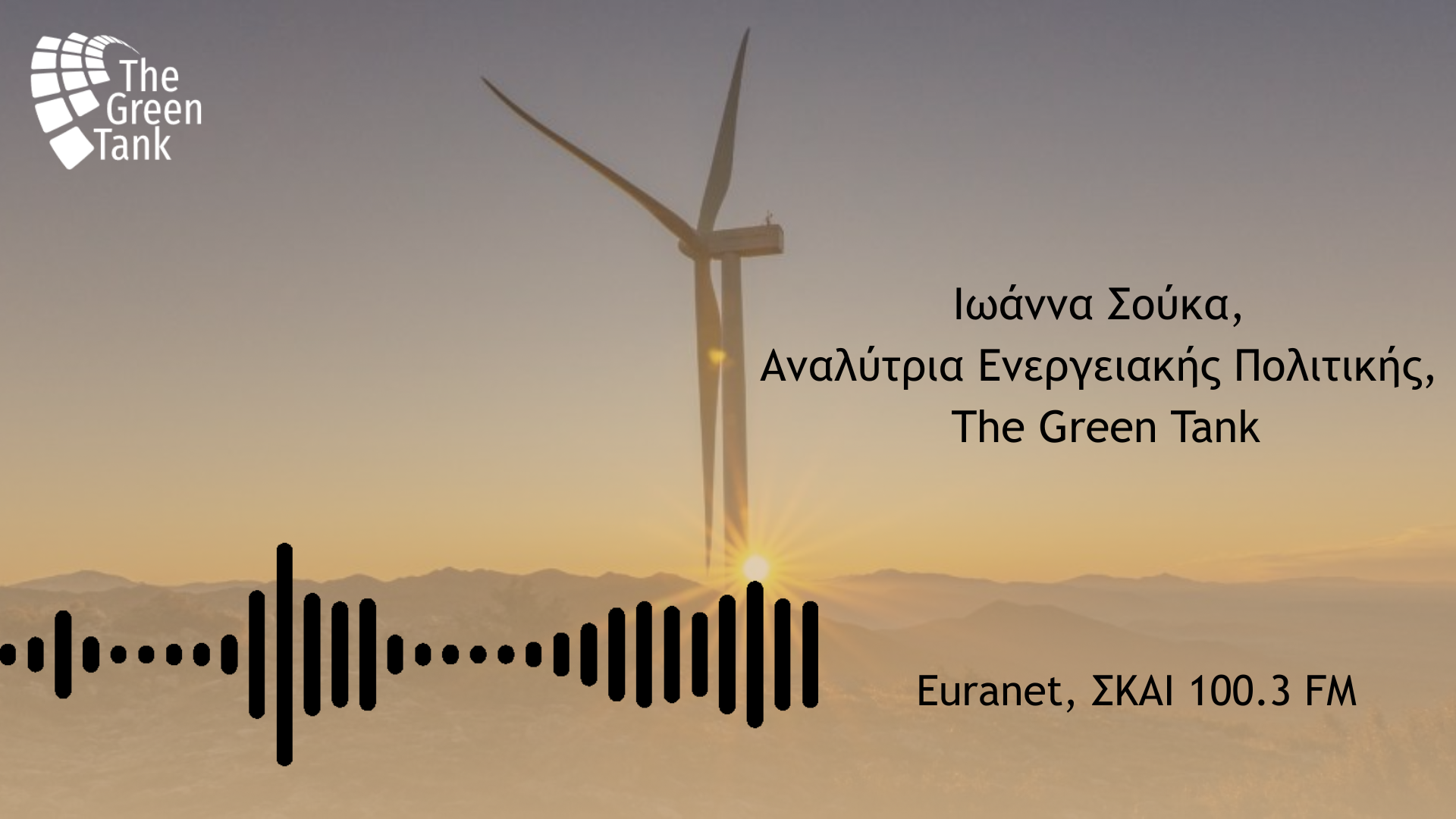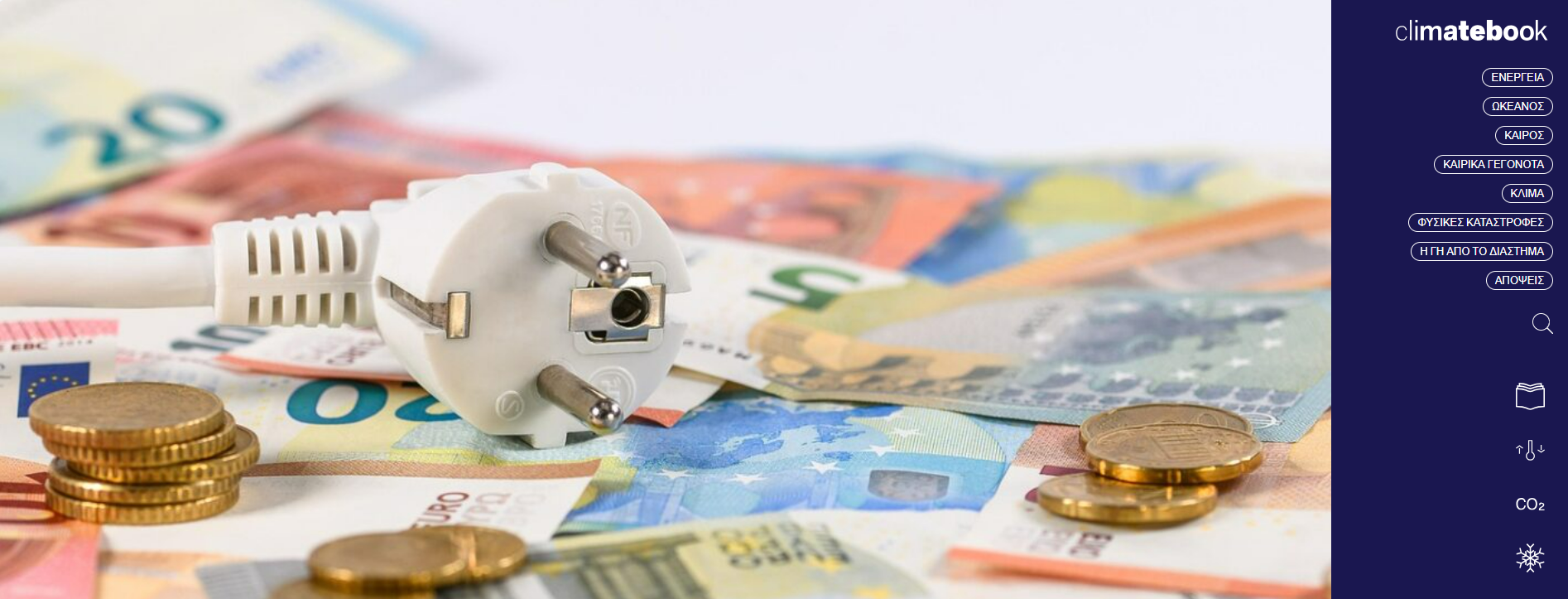The carbon footprint of electricity production – August 2025
In the first 8 months of 2025, carbon emissions from the power sector (10.56 million tons) exceeded the annual carbon budget of the NECP (10.2 million tons), as fossil gas plants set a record for the same period with 5.79 million tons. For August, however, emissions were relatively lower (1.32 million tons), and carbon intensity was low (213.9 g CO2/kWh) thanks to reduced lignite and gas use.
Market interventions and energy storage: the “keys” to lower electricity prices
Ahead of the announcement of October electricity tariffs, Nikos Mantzaris spoke on ERT with journalist Katerina Christofilidou about energy prices.
Trends in electricity production – August 2025
A record monthly electricity production from RES (2,992 GWh) occurred in August despite high curtailments (231 GWh). With lignite significantly reduced (74 GWh) and gas slightly reduced (2,024 GWh), the average wholesale market price was 73.16 €/MWh, a 16-month low. The first eight months of 2025 saw record highs for exports (1,420 GWh) and gas (15,413 GWh). However, net sources outperformed fossil fuels by 602 GWh, meeting 52.6% of demand.
The Green Tank on the “Synora” Show: Coal Phase-Out and the Western Balkans
Nikos Mantzaris, political analyst and co-founder of The Green Tank, appeared on ERT3’s “Synora” show to discuss Greece’s progress in phasing out coal and the significant delays in the Western Balkans.
Can Businesses Reduce Electricity Costs Through Energy Communities?
At a time when the focus is on lowering energy costs for the country’s large industries, small and medium-sized enterprises (SMEs) must not be left behind. Energy communities offer a crucial tool to support them, enabling collective energy production and consumption, which lowers costs and strengthens financial sustainability. According to the article by Christina Zafeirouli on energygame.gr, with contributions from Ioanna Souka, there are already examples of energy communities in Greece, the most recent being the Prespes Renewable Energy Community (PREC).
A Just Energy Transition and the Role of Citizens: The Green Tank on Euranet
Ioanna Souka, Energy Policy Analyst at The Green Tank, spoke on the radio program Euranet and to journalists Nikos Andritsos and Korina Georgiou, about the just energy transition and the crucial role of citizens. As she stressed, “for the energy transition to succeed, citizen participation is essential.”
From 7.4 TWh to 1.8 TWh: Six Years of Progress in Phasing Out Lignite
It has been six years since the Prime Minister announced Greece’s full exit from lignite from the UN podium. Up until that decision, and during the first eight months of 2019, the country relied on 7.4 TWh of electricity from lignite. At any given hour of the year, at least one lignite unit was in operation, and the power sector emitted a total of 19 million tonnes of CO₂ over that eight-month period.
Carbon Tax on Heating and Road Transport: How Greece Can Turn €15.5 Billion into a Lever for Change
In an article on Climatebook.gr, Ioanna Souka analyzes the new EU carbon tax (ETS2) set to apply from 2027 to heating and road transport.
Climate Crisis & Human Rights: How Courts Are Shaping Climate Justice
The climate crisis is not just an environmental issue—it is a fight to protect fundamental human rights. In the article “Climate Crisis & Human Rights: When Justice Takes a Stand,” published in Huffington Post Greece, The Green Tank’s Communications Officer, Maria-Christina Doulami, examines how the impacts of climate change are increasingly reaching the courtroom.
Trends in fossil gas consumption & imports – August 2025
In August 2025, domestic gas consumption reached 5.34 TWh, down 16.4% compared to July due to reduced usage in all three sectors. However, in the first 8 months of 2025, the power generation sector reached a decade high of 32.7 TWh, +11% compared to 2024. Gas demand in networks also increased (+18%), reaching 8.8 TWh. In the eight-month period, the first source of imports was LNG with 21.2 TWh. In second place is Russian gas via Sidirokastro with 18.2 TWh, despite the large decrease in August (-40%) compared to July.
Preparation and challenges for Greece’s phaseout of Russian gas by 2027
Greece, one of the last EU member states still importing Russian natural gas under long-term contracts, is preparing to comply with the European Union’s target of a complete phaseout by the end of 2027, according to an Energy Intelligence article titled “Greece Prepares for Russian Gas Phaseout”, to which The Green Tank contributed.
The carbon footprint of electricity production – July 2025
In July 2025, carbon emissions from power plants reached 1.79 million tons, the highest in two years. Record emissions from fossil gas plants were recorded in the first 7 months of 2025 (5.05 million tons). During the same period, a total of 9.24 million tons were emitted from the power sector, already accounting for 90.5% of the annual carbon budget according to the NECP, making it practically impossible to reach the target.
Trends in electricity production – July 2025
Historical records for monthly electricity generation from RES (2,871 GWh) and fossil gas (2,494 GWh) were recorded in July 2025, while the average wholesale market price stood at 100.6 €/MWh. In the first seven months of 2025, lignite reached a new low (1,739 GWh), covering only 5.2% of demand. In contrast, gas reached a high for the same period (13,405 GWh), as did net exports (963 GWh) and RES curtailments (1,385 GWh).
ETS2 and Carbon Pricing: Challenges and Opportunities for a Fair Energy Transition in Greece
In the article titled “Carbon Tax through ETS2: New Burden or New Opportunity?”, published in the newspaper Epohi, Ioanna Souka, Energy Policy Analyst at The Green Tank, explores the social and economic challenges linked to the introduction of the new Emissions Trading System (ETS2) in Greece starting in 2027.














